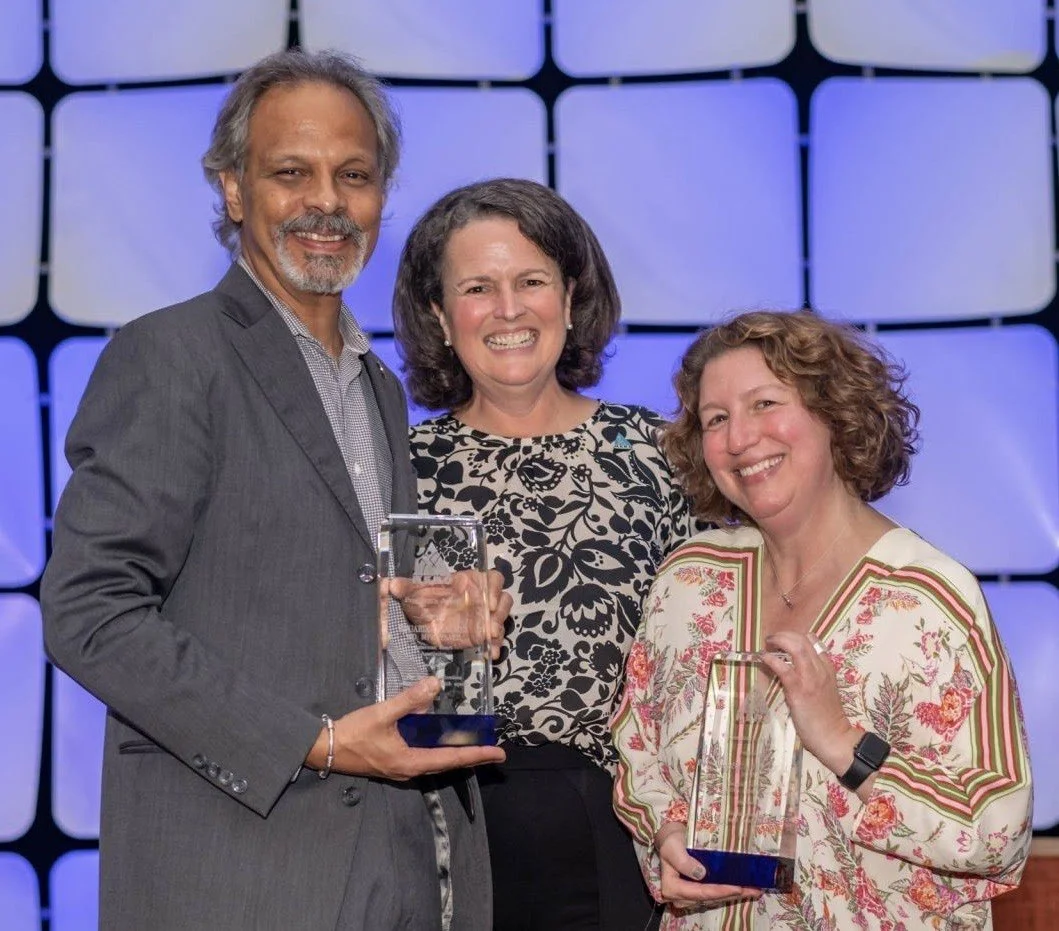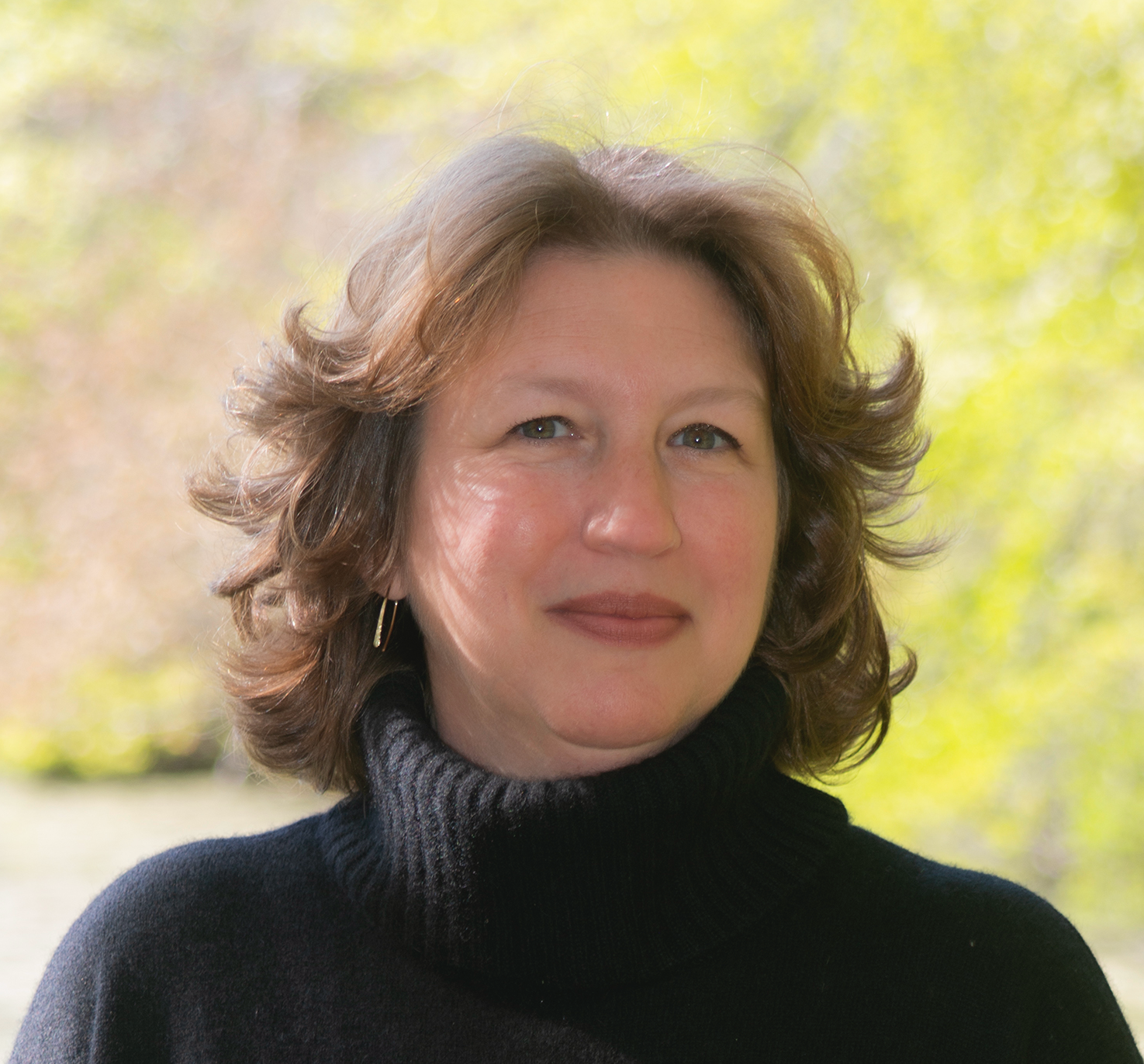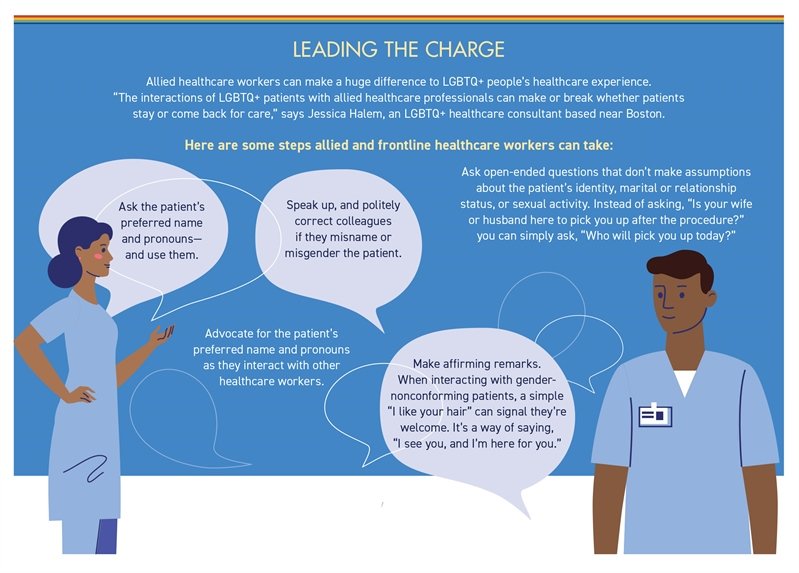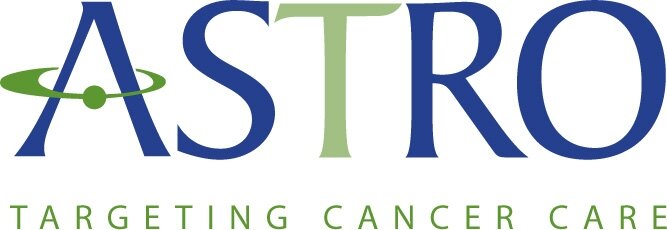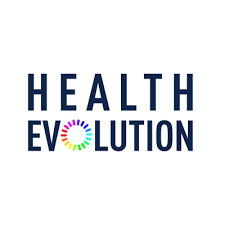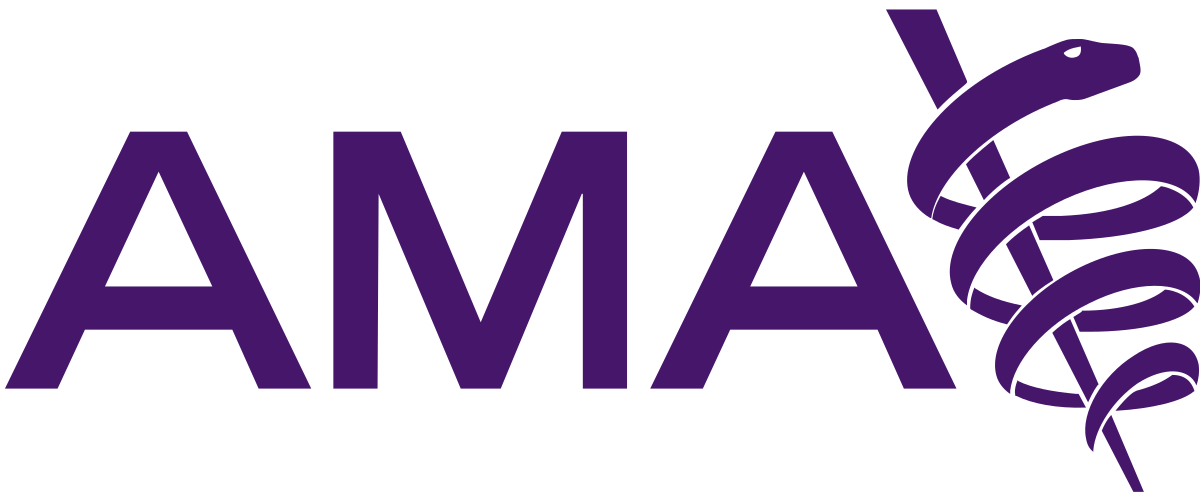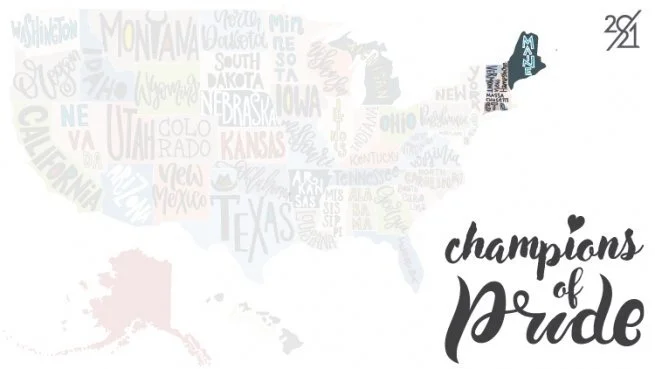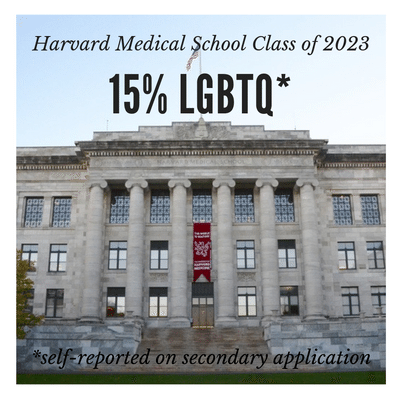From taboo topics to raw stories, Jessica will go where many don’t to help improve health equity and intentional inclusion. You’ll learn that the bedrock of culturally competent care is achieved by appreciating the history and impact of the stigma that LGBTQ+ people have faced and overcome.
The Best of 2023 List
Chosen as one of the “Best of 2023” in the American Journal of Health Promotion by the Editor, read “LGBTQ+ Workplace Inclusion and the Great Resignation” first published online May 16, 2023.
Gender Affirming Care should be driven by evidence-based medicine – not politics
It is time for business leaders to stand up for transgender and nonbinary youth.
Co-authored by Jessica Halem and Colin Quinn. March 21st, 2023
The first gender affirming surgery was done 100 years ago. The American Psychiatric Association resolved that homosexuality was not a mental illness 50 years ago. Both watershed moments happened because patients advocated for themselves and medicine adapted. We’re doing it again today.
Now and for the past seven years, many in healthcare have been working to enforce the intent of the historic ruling in the summer of 2016. That’s when the Office for Civil Rights of the United States Department of Health and Human Services issued Section 1557 of the Affordable Care Act prohibiting discrimination in healthcare settings. The Obama and Biden Administrations have since affirmed that the rule includes sexual orientation and gender identity.
The intent of Section 1557 is not only to ensure the (passive) absence of discrimination in our industry but also the (active) inclusion of safe, accessible, and appropriate healthcare for all people, including gay, lesbian, bisexual, and transgender patients. But right now best practices in medical care for LGBTQ+ people, specifically those who are transgender and nonbinary are being rolled back in a multi-front, coordinated attack in some locations. We have to see this attack clearly, and fight it soundly.
In total, 315 anti-LGBTQ bills were introduced in state legislatures in the United States in 2022. Of those bills, 29 were signed into law. This year, the numbers are growing and attacks are unrelenting: 420 anti-LGBTQ+ bills have already been proposed this year alone. (Read more in the February 2023 report from Movement Advancement Project (MAP), an independent, nonprofit think tank.) Every time there’s a new headline, concerned and supportive providers, payors, schools, and HR & benefits professionals ask what they can do to ensure quality healthcare is uninterrupted? They want to move forward, not back.
The promising news is that medical research is on their side. Medically necessary care for adults and youth who are transgender and gender-diverse has been researched and endorsed by the American Academy of Pediatrics, American Psychological Association, and the American Medical Association. These experts – and many more – have spent years putting together a body of work to guide us. We hope everyone will take the time to read from these trusted sources.
And, as members of the LGBTQ+ community, and as healthcare leaders, we are here to maximize healthcare access for all, support the understanding of the latest clinical guidelines, share best practices for coverage and patient care, and develop services to navigate people to the care they need when they need it. Debate may continue, but three things must happen.
First, the medical experts and community should guide this conversation. They should lead clinical and policy decisions regarding patient care and overall health and wellness. After all, decisions to be made about medical care involve two people: the medical professional and the patient. There are two seats at the table. We can strengthen the conversation that happens there, making sure it’s informed with data, research, and led by providers who are equipped with appropriate training. But those seats belong to patient and medical professional, not politicians.
Second, transgender medicine must continue to advance, with investment in medical research, data, and clinical training. The medical community reports that providers are woefully underprepared. We have to increase the number of providers in every state who are trained on protocols and best practices like those offered by the The World Professional Association for Transgender Health, to provide high quality, accurate, and affirming care.
Third, employers, people leaders, and organizations can and should play an active role, so employees feel seen and supported, and have access to the benefits they deserve. How, exactly? Businesses can shore up their LGBTQ+ community, while we continue to make the winning arguments to stop these bills, which are uninformed by medical evidence. (We have precedent on our side: 91% of Anti-LGBTQ+ bills proposed failed in 2022 and 24 pro-equality bills were passed). Some ideas:
Strengthen or start an LGBTQ+ Employee Resource Group (ERG), and support programming that reaches families with kids who are LGBTQ+.
Be an Ally. Send a message on March 31st for International Transgender Day of Visibility. A short, positive, company-wide email and social media post, like: “This company stands with our transgender and nonbinary employees, their families, and our customers.”
Conduct a quick benefits equity assessment to ensure your benefits are inclusive and everyone knows how to use them. Review and revamp Benefits’ Travel Policies so members can take advantage of them as needed, especially now.
Contact local and state government officials to express your company’s support for LGBTQ+ people of all ages. Remind them to follow the evidence and medical research from trusted sources.
Do more in your industry. Ask yourself: What can your business and peer businesses uniquely do to champion the rights of all people to express the full range of diversity of gender, families, and relationships?
Bottom line: Every American deserves access to safe, high-quality, affirming healthcare - and a workplace that ensures it. If business leaders respect the wisdom of patients and the expertise of medical professionals, they’ll get it.
Author Biographies:
Colin Quinn serves as the President of Included Health Communities at Included Health. As a member of the LGBTQ+ community, he understands firsthand the challenges members of the LGBTQ+ community face navigating the healthcare system. He is passionate about raising care equity for underserved patient populations. He received his undergraduate degree in Finance at Butler University and has an MBA from Stanford’s Graduate School of Business
Jessica Halem, MBA, has worked for over two decades in the LGBTQ+ health equity space as the Executive Director of the Lesbian Community Cancer Project in Chicago; the LGBTQ+ Director at Harvard Medical School; Board of Directors of the Tegan and Sara Foundation; and now as the Senior Director of Eidos, the LGBTQ+ Health Initiative at University of Pennsylvania.
HERO announces winners of 2022 Health & Well-Being Awards
The Health Enhancement Research Organization (HERO) recognized outstanding contributions by workplace professionals within the health and well-being industry during the HEROForum22 annual conference on Amelia Island in Florida.
HERO’s CEO & President, Karen Moseley also presented the prestigious President’s Award to Jessica Halem, MBA, Senior Director of The Eidos LGBTQ+ Health Initiative at the University of Pennsylvania; and Eduardo Sanchez, MD. MPH, FAHA, Chief Medical Officer for Prevention at the American Heart Association. In her presentation remarks, Moseley commended Halem and Sanchez for their decades-long commitment to health equity and intentional inclusion.
History & Inclusive Language for LGBTQIA+ Patients
When health care organizations partner with Violet, clinicians not only access education to upskill and benchmark cultural competence but also access exclusive webinars presented by thought leaders.
History & Inclusive Language for LGBTQIA+ Patients, presented by Jessica Halem, MBA and Violet educator. Enjoy the discussion and Q&A providing in-depth knowledge about inclusive communication strategies.
Want to learn more about Violet? Visit us at https://www.joinviolet.com.
Abortion Rights made LGBTQ Health Possible
Everything I know about being Queer, I learned from Abortion.
I was a teenager in Ohio during the late 80s obsessed with Abortion. It was all I talked about. I was on the Pill, I went to my first March on Washington, I spent my entire High School Graduation speech talking about “Choice”. I got to college in the early 90s in Westchester County right after their local abortion clinics had been bombed by Operation Rescue. I spent my weekends in the cold rain escorting patients in and out of the Clinic protecting them from the violence of the protesters. I Marched on Washington again. My politics and my identity always started with Abortion.
Abortion was how I could imagine my Queerness.
Living and breathing Abortion possibilities meant everything else was possible, too. In questioning the restrictions and shaming of Abortion, you had to get at what the world imagines for women. And if you get at what the world imagines for women, you have to question your sexuality, too. Questioning the category of woman and everything that was tied to it – heterosexual sex, birth, and marriage – is liberating. The promise of abortion releases women from stereotypes about what it means to be a woman. Abortion being controlled by others is the exact same premise as women being controlled by others. Access to abortion on demand and without apology released me from the constraints of womanhood, including heterosexuality. Fighting for Abortion made me Queer.
It was a natural step to AIDS activism where the well-organized ACT UP movement had so clearly and passionately connected the dots to access and drugs and information about medicine and healthcare. It was clear we had to fight back against any form of shame or stigma for needing lifesaving drugs and information. I knew this because of Abortion. I knew that our bodies were our own to love and save and protect and heal and those who knew more about them must help us – with no judgement about how we got here in the first place. We had to always separate our personal journey around “mistakes” and “risk” and “should have known better” from a medical professional’s ability to provide a fix.
Then there was the Lesbian Feminist Cancer Movement. The women who had worked so hard protecting Abortion and then fighting for AIDS drugs were getting older and getting diagnosed with Cancer. Here they personally met up against the systems they knew all too well from fighting on behalf of everyone else. Doctors that judged them for being gay, or fat, or smoking, or all three at once. Cancers that should have been caught earlier with screenings or prevention. But we had just spent the previous 20 years witnessing medicine’s sexism and homophobia and cold and unjust attitude toward Abortion and HIV. You think I’m gonna voluntarily get a mammogram now?
So we didn’t. We couldn’t. We couldn’t trust any of them. And we started our own clinics and our support groups and our educational campaigns. We healed each other. We buried each other. And we looked around and said enough is enough. We joined with our brothers who started their own AIDS clinics and we became a larger movement that we now call LGBTQ Health. We knit it all together.
The healthcare system was sick – not us. The political system was broken – not us.
We built new worlds together. We played and imagined. We celebrated and partied. We raised our own money. We had our own bars. We kept articulating what it meant to open our body up to possibilities of health and life and demand a system that did, too. That understood us.
In the early 2000s, my then partner came out as transgender. My program director at the Lesbian Community Cancer Project came out as transgender. My queer community was once again changing and growing with the power and promise of personal liberation. Imagining their bodies into existence. New names, pronouns, hormones, surgeries. All another step in our goal of making medicine work FOR us and not AGAINST us. A movement of autonomy and joy and bodies of our choosing. Choice was always our mantra.
Everything we knew from Abortion, HIV, and Cancer became our movement for Transgender Health. No longer would we have to suffer in bodies or lives prescribed by the world upon our birth.
We could live as we wanted. We could bring our inner most thoughts to the surface to be seen and appreciated by all. If we were to truly shed the dogma of heteronormativity – we must also shed gender, too.
Today’s LGBTQ Health Movement is all of us. The fight for Abortion and HIV medicine. Cancer support. Hormones and surgery. It is our right to control our own bodies. It is our fight to make medicine work for us. It is our bond to work across and with our differences to usher in something better for all. We have built a new world and new conversations that I could have never imagined in the 80s, 90s, 2000s. We know more than ever.
The Abortion fight is our fight. Not because we are women or not; or have a uterus or not; or have sex that could lead to pregnancy or not. This is our fight because they are all our fights. We must bring everything we have learned from Transgender Health and HIV and Cancer and access and shame and stigma to benefit Abortion. Because there is no LGBTQ Health anywhere without Abortion Rights everywhere.
###
American Medical Technologists
As frontline workers, allied health professionals are key for creating a welcoming environment for LGBTQ+ patients and workers, which may boost health outcomes and provide greater healthcare resources.
Read the blog here: https://americanmedtech.org/Blog/Blog-Post/a-space-for-everyone.
LGBTQ Health Equity Series: Understanding Transgender Healthcare Access & The Patient Experience
CVS Health and Accenture are proud to present an in-depth conversation on transgender health care, alongside a toolkit (to be found at https://cvs.co/3Bsz4ji) of guidance and resources to improve the transgender patient experience.
Part of our ongoing speaker series focusing on LGBTQ+ Health Equity, the goal of this panel is to provide increased awareness and understanding of the transgender patient journey, to explore ways to improve transgender patient access to health care, and to facilitate positive experiences for transgender patients and health care providers.
American Society for Radiation Oncology
Thank you to the American Society for Radiation Oncology for bringing me on to help organize and faciliate a terrific panel on: Sexual and Gender Minorities/LGBTQ+ Issues in Radiation Oncology. Together with Shilpen Patel, MD, FASTRO, Sutter Health and Good Samaritan Hospital; Daphne Haas-Kogan, MD, FASTRO, Dana-Farber Cancer Institute; and Carl Streed, MD, MPH, Massachusetts Medical Society (MMS) Committee on LGBTQ Issues — we were able to dig into the issues facing LGBTQ+ patients and their families as well as the issues facing LGBTQ+ trainees and physicians in Radiation Oncology. I know this is just the beginning of this vital health equity work for ASTRO.
How health care organizations can work to improve LGBTQ+ care
How health care organizations can work to improve LGBTQ+ care
The moments that can negatively shape an LGBTQ+ person’s experience with the health care system often happen before they even see a doctor.
“We could talk all day long about screenings, disparities and outcomes—the things that health care professionals want to talk about—but [many LGBTQ patients are] not even going to the doctor in the first place. That’s where this crisis really starts and ends,” says Jessica Halem, who works as a consultant for health care organizations and served as the inaugural LGBTQ Outreach and Engagement Director at Harvard Medical School. “The discrimination and barriers that LGBTQ people face from even going to a doctor’s office is the greatest risk we have in our lives.”
Read the full article HERE.
Tegan and Sara Foundation Share Findings From Survey of LGBTQ+ People and Covid-19 Vaccine Roll-out
Vaccine Hesitancy for LGBTQ+ People Affected by Previous Bad Experiences with Healthcare System
Tegan and Sara, award-winning musicians and founders of the Tegan and Sara Foundation, are sharing the results of their most recent healthcare survey to understand experiences with the COVID-19 vaccine within the LGBTQ+ community. The survey was developed by the Tegan and Sara Foundation in collaboration with health communications firm Entree Health and reviewed by researchers at SurveyMonkey, a leader in agile software solutions for customer experience, market research, and survey feedback, with contributions from physicians and healthcare experts specializing in LGBTQ+ healthcare.
Key findings include:
The LGBTQ+ population in the US is highly accepting of the COVID-19 vaccine
More than 2 in 3 respondents are already vaccinated
84% of the remainder want to get the COVID-19 vaccine “as soon as possible”
Gender minority people are more likely to want to get the vaccine as soon as possible, but are less likely to have already been vaccinated
Wanting to protect others is the most important reason LGBTQ+ people have gotten or will get vaccinated
Previous bad experiences with the healthcare system is an important driver for LGBTQ+ people who say they will wait to get vaccinated
Tegan and Sara, award-winning musicians and founders of TSF, said:
“We’re passionate about healthcare access for LGBTQ+ people, and always have been. As advocates, we have focused on healthcare because we see how access to quality and affirming care affects our community. Most studies aren’t asking queer people the questions that we need to get better care.”
“That’s why we launched the LGBTQ+ COVID-19 Vaccine Attitudes Study, to better understand the needs and concerns of our community on the pandemic and vaccine efforts. Without these perspectives, healthcare can’t truly be inclusive - which will have repercussions for a long time. We hope the readers of this study can use these results to make meaningful change in their own communities.”
Tegan and Sara and the Foundation encourage all members of the LGBTQ+ community and beyond to review the results of the survey, which can be accessed at the LINK.
Survey Background
COVID-19 has a unique impact on LGBTQ+ people and other marginalized communities (including people of color and rural communities). LGBTQ+ Americans are more likely to live in poverty and lack access to adequate medical care, paid medical leave, and basic necessities - all of these issues have been exacerbated by COVID-19.
The completely-confidential survey, developed with leading LGBTQ+ healthcare experts, was designed to be sensitive to the needs of the community. While current gender was asked in this survey, there was no question asking sex assigned at birth. These questions are often asked insensitively and create unnecessary barriers for gender nonconforming, nonbinary, and transgender people. The survey did include 17 gender and sexual orientation choices, including the option to write-in or choose not to disclose.
To obtain a holistic understanding of the queer community, TSF prioitized survey outreach and distribution to community-level organizations and underserved groups, to make sure that survey response included the diverse voices of the LGBTQ+ community. Key to this outreach was TSF’s Community Grants partners, which reach 39 grassroots organizations across the U.S. and Canada.
About Tegan and Sara Foundation
Tegan and Sara Foundation (TSF) was founded in 2016 by Tegan and Sara to address inequalities faced by LGBTQ+ women. TSF’s mission is improving the lives of LGBTQ+ women and girls. This mission is founded on a commitment to feminism and racial, social and gender justice. Learn more about TSF’s work and flagship programming at the OFFICIAL WEBSITE.
About Tegan and Sara
Tegan and Sara have openly identified as queer since the beginning of their career in 1998, and have been outspoken feminist advocates for LGBTQ+ equality and gender justice. The essential message that underpins their worldview and identity is inclusion. The Tegan and Sara Foundation is an extension of their work, identity and longstanding commitment to supporting and building progressive social change.
As musicians, Tegan and Sara have sold more than one million albums, and have received seven Gold certifications, one Double Platinum certification, three Juno Awards, two Polaris Prize nominations, and a Grammy nomination. They have performed on some of the world’s biggest stages, from the 2015 Oscar Telecast to major festivals such as Coachella, Lollapalooza and Glastonbury.
About Entrée Health
Entrée Health is a communications and medical strategy agency serving the life sciences industry and focused on the belief that people deserve access to the healthcare they need. It helps companies secure insurance coverage for their brands, communicate to physicians and patients about the coverage and financial aspects of biopharmaceuticals, and create materials that help overcome coverage hurdles. Entrée Health’s proprietary, integrated data enables them to optimize market access and value strategy and create award-winning communications for drug, device, and diagnostics manufacturers. Reducing the impact of health inequity is a key component of their work; Entree Health has partnered with the Tegan and Sara Foundation since 2018.
Watch the full video of the webinar in collaboration with the National Academies of Sciences, Engineering, and Medicine and the Kaiser Family Foundation to discuss the state of LGBTQ+ Communities in the COVID-19 Pandemic.
American Medical Association LGBTQ & Allies Caucus June 2021 Meeting highlights
Jessica Halem, MBA, award-winning educator, advocate, communicator and consultant on LGBTQ+ issues delivered a keynote address aimed at recentering foundational concepts in LGBTQ health. Ms. Halem explored historic milestones, current demographics, public policy achievements and challenges, and ongoing challenges and opportunities for improving physician awareness and understanding of LGBTQ+ health and well-being and the importance of centering patients in charting the course for the future.
Caucus participants engaged in discussion to assess the impact of the pandemic on LGBTQ+ health, raise awareness of related AMA work and the vital importance of stakeholder alliances. Central to this work is including and elevating the diverse voices and experiences of LGBTQ+ patients, medical students, physicians, and community care and service professionals.
Read more HERE.
The Advocate's Champions of Pride 2021
The Advocate's Champions of Pride 2021 are the unsung heroes who are making inroads for LGBTQ+ people in their fields of work and in their communities every day despite the risks or challenges. More than 100 changemakers (two from each state, Washington D.C., and the U.S. Territories) have been named to the list.
With trans rights and safety under siege across the country, it’s imperative to amplify and elevate the breadth of LGBTQ+ identities. The Champions of Pride print and digital editions and virtual event is our way of honoring the diversity and dedication of so many in the LGBTQ+ community.
With a long history in working with LGBTQ+ folks, Jessica Halem, MBA, was the inaugural LGBTQ outreach and engagement director at Harvard Medical School. Previously, Halem ran the Lesbian Community Cancer Project in Chicago. There she implemented the nation’s first cultural competency trainings for the Centers for Disease Control and served on then-candidate Barack Obama’s first LGBT Advisory Committee. Halem, who identifies as a Jewish queer femme, also trained in improv at Chicago’s famed Second City. She utilizes the knowledge she gleaned there to “coach individuals and teams on dealing with difficult moments,” she says. “I like bringing my sense of humor, years of connections and experience, together with great ideas and teams,” she says. “I am passionate about helping LGBTQ people take up more space with more confidence and more joy while manifesting the world we all deserve.”
Currently, Halem, also serves on the board of the Tegan and Sara Foundation, which, “launched a microgrants program to get money quickly into the hands of LGBTQ creators, nonprofits, and activists.” she says. “I am so excited to see what these partners are doing on the front lines of issues like incarceration, trans youth, queer history, and housing.”
"Uncleaving sex and gender is going to change the entire world..."
"Starting as a teenager, I came to think of queer health through of lens of social justice in many different ways. I started thinking about the world through a feminist lens in the 80s and I became involved in reproductive justice and abortion-rights. I grew up in a small town in Ohio where rich girls had birth control and poor girls had babies. No one wanted to have an abortion. I definitely was influenced from the very beginning by seeing issues of bodily autonomy, lack of access to healthcare information, and lack of access to something as simple as birth control and abortion rigged by class. All of this existed in a highly charged, political society with deep roots in sexism and race. And of course, we know now that sexuality and gender identity play large roles in that struggle. I understood the world of social justice and problems through the lens of how our physical bodies are impacted by the world’s conflicts.
Then in the late 80s and early 90s I became involved in HIV and AIDS activism. I moved to New York City where I attended Sarah Lawrence College. I worked at abortion clinics in Westchester County that were sites of bombing. Again, this idea of healthcare being under siege was very real to me. There was actual violence that was attached to accessing healthcare. I was not an active member of ACT UP, but I was involved in The Women's Health Action Mobilization that grew out of the ACT UP movement. I think back on these experiences now and recognize how much of an influence these experiences had on my involvement in LGBTQ healthcare advocacy today.”
Read the interview HERE.
Gay to the Bone: LGBTQ Orthopedic Surgeons and Career Success
Recorded on Feb 10, 2021 — a lively panel discussion with LGBTQ Orthopedic Surgeons and trainees as they discuss thriving in a specialty often perceived as the least open to diversity and inclusion.
This special event was co-moderated by Jessica Halem who spent six years at Harvard Medical School as the inaugural LGBTQ Outreach and Engagement Director where she successfully increased recruitment of LGBTQ medical students from 4% to 15% of the class. Her co-moderator was Aliya Feroe, MPH who is and MD Candidate at Harvard Medical School.
Panelists include:
Jaime Bellamy, DO; Adult Reconstruction Orthopaedic Surgeon; Fort Bragg, North Carolina
LTC Jaime Bellamy received her Bachelor of Science in Chemistry (2001) and Masters of Science in Biology (2004) degrees from Missouri State University and her Doctorate of Osteopathy (2008) degree from Kansas City University of Medicine & Biosciences. She joined the Army through the Health Professions Scholarship Program in 2004. After medical school, she completed a Transitional Internship at Brooke Army Medical Center, San Antonio. After Internship, she was a Flight Surgeon and deployed to Iraq in support of Operation Iraqi Freedom in 2009. She did her Orthopaedic Residency at Brooke Army Medical Center from 2010 to 2015 and Fellowship in Adult Reconstruction at Emory University, Atlanta from 2015 to 2016.
She is stationed at Ft. Bragg, NC as an Orthopaedic Surgeon at Womack Army Medical Center where she serves as the Chief of the Orthopaedics Service. LTC Bellamy deployed as an Orthopaedic Surgeon to Afghanistan on a Forward Surgical Team in support of Operation Freedom Sentinel in 2018.
LTC Bellamy is Board Certified by the American Board of Orthopaedic Surgeons. She is an Emerging Leader of the American Orthopaedic Association and Fellow of the American Association of Hip and Knee Surgeons and American Academy of Orthopaedic Surgeons (AAOS). In the AAOS, she serves on the Diversity Advisory Board committee. LTC Bellamy is on the Editorial Board and an Elite Reviewer for the Journal of Arthroplasty. She is a social media ambassador for the AAOS, Society of Military Orthopaedic Surgeons, and Women in Arthroplasty and the Social Media Editor for Arthroplasty Today.
She has been married to her wife Kalah since 2014 after the repeal of DADT and DOMA. They have a hobby farm with various rescued animals.
FIND LTC BELLAMY ON TWITTER HERE: https://twitter.com/jaimelbellamyDO.
Chloe EH Scott, MD MSc FRCSEd; Consultant Hip & Knee Surgeon; Royal Infirmary of Edinburgh
Chloe Scott is a consultant hip, knee and trauma surgeon and an NHS Scotland Research Fellow working at the Royal Infirmary of Edinburgh, United Kingdom. She is the 2020 recipient of the Hunter-Doig medal from the Royal College of Surgeons of Edinburgh. She completed medical training and an MD in unicompartmental knee biomechanics at the University of Edinburgh in addition to a master’s degree in orthopaedic engineering from Cardiff University. Her current research interests include arthroplasty outcomes, periprosthetic fractures, post-traumatic osteoarthritis, finite element analysis and knee biomechanics. She serves on the executive committee of the British Association for Surgery of the Knee and on the editorial boards of the Bone and Joint Journal and Bone and Joint Research where she is also an associate editor for hip and knee papers. She has been involved in projects to increase visibility and diversity in orthopaedics in both the UK and the US and is active on Twitter.
FIND DR. SCOTT ON TWITTER HERE: https://twitter.com/EdinburghKnee.
Dr. Steven Orr is a Clinical Assistant Professor in the Department of Orthopaedic Surgery at the NYU Grossman School of Medicine. He is a fully trained orthopaedic surgeon and a fellowship trained hand and upper extremity surgeon, specializing in conditions of the hand, wrist, forearm, and elbow.
A native of Atlanta, GA, Dr. Orr graduated magna cum laude from Vanderbilt University. He completed his medical school training at Duke University School of Medicine, where he was awarded the Anthony V. Seaber Student Fellowship from the Piedmont Orthopaedic Foundation for his research in the field of tendon engineering.
Dr. Orr moved to New York to complete his orthopaedic residency training at Hospital for Special Surgery. While at HSS, Dr. Orr’s research focused on optimizing imaging techniques of the complex joints of the hand and wrist, and he received grants from both the American Foundation for Surgery of the Hand and the Orthopaedic Research and Education Foundation for this work. He was also instrumental in the development and adoption of a patient safety and quality improvement initiative promoting early detection of and rapid intervention for new post-operative nerve complications in joint replacement patients.
During his hand and upper extremity surgery fellowship at NYU Langone, Dr. Orr’s training encompassed the full spectrum of hand surgery, including microsurgical and arthroscopic techniques. While in fellowship, Dr. Orr turned his research efforts to identifying and addressing implicit bias as it pertains to hand surgery. Dr. Orr is thrilled to retain an affiliation with NYU Langone and to continue serving as an educator to residents and fellows.
Beyond his clinical, research, and educational endeavors, Dr. Orr is a member of GLMA: Health Professionals Advancing LGBTQ Equality (previously known as the Gay & Lesbian Medical Association) and a member of the NYU Langone Orthopaedic Diversity and Inclusion Committee. In these roles, Dr. Orr works to promote healthcare equality and representation for LGBTQ patients and providers.
Outside of his work in healthcare, Dr. Orr enjoys singing, writing songs on his Yamaha keyboard, staying fit, spending time with friends and family, eating great food, and traveling the world with his husband.
FIND DR. ORR ON INSTAGRAM HERE: https://www.instagram.com/stevenborrmd/.
Navigating Your Rainbow Path: Being Queer in Academia
University of Texas PRIDE Health Pop-Up Research Institute 2020
This panel, moderated by Jessica Halem, explored the barriers and facilitators encountered by successful LGB-identified academic clinicians and educators. This conversation is meant to be broadly applicable and audience Q&A will follow.
Speakers:
Jessica Halem, MBA, LGBTQ Diversity, Equity, and Inclusion Expert and Consultant
Chase Anderson, MD, Child Psychiatry Fellow, UCSF
Robin Reister, MD, Internal Medicine Primary Care Program Director, Dell Medical School
René Salazar, MD, Assistant Dean for Diversity and Professor of Internal Medicine and Medical Education, Dell Medical School
American Pediatric Surgical Association 2020
Bias in the Workplace
U.S. medical schools boost LGBTQ students, doctor training
Exact numbers of LGBTQ medical students and doctors are unknown. In 2018, the AMA added sexual orientation and gender identity as an option for members to include in demographic profiles the group compiles. Of the 15,000 doctors and students who have volunteered that information so far, about 4% identify as LGBTQ. That’s similar to Gallup estimates for the general U.S. population, although LGBTQ advocates believe the numbers are higher and rising as more people are willing to “out” themselves.
This past fall, Harvard’s entering class of medical students was 15% LGBTQ, a milestone that is no accident.
LGBTQ&A: Building a Foundation for Understanding and Care
June is LGBTQ Pride Month, a good time to better understand the health and wellness concerns of the lesbian, gay, bisexual, transgender and queer community. A panel of experts from Harvard Medical School will share research and experiences with LGBTQ patients, answer questions about health disparities, and discuss the importance of social supports and how to foster an inclusive environment that is welcoming to all.
First-of-its-Kind Role: Health Equity Advocate at Harvard Medical School
Jessica Halem ’16MBA shares her work with the Sexual and Gender Minorities Health Equity Initiative.
Can you tell us about your role at Harvard Medical School?
Harvard Medical School (HMS) sits uniquely at the intersection of higher education, healthcare policy, and multiple teaching hospitals and institutes. When the Dean created a role for tackling LGBTQ issues, it meant a once-in-a-lifetime opportunity to influence all of these areas with my special mix of optimism, advocacy, and training. I started this first-of-its-kind role almost five years ago when I was getting my MBA at Simmons. I approached the position like a consultant: diagnosing, interviewing, and uncovering. I then developed a strategy and went to work. I’m so pleased to say we already have achieved so many successes!
Can you tell us about the Sexual and Gender Minorities Health Equity Initiative?
After years of work toward changing the culture and climate for LGBTQ staff, faculty and students at HMS, we were finally primed to tackle the greatest challenge — the curriculum. Medicine is unlike any other industry where I’ve worked. I bring fresh eyes and years of experience advocating for LGBTQ people whose healthcare needs frequently go unmet. Working with a very generous donor, we will be able to revise our curriculum to incorporate the latest findings in LGBTQ health generally and to improve transgender medicine in particular. Every student who studies here will be equipped to care for LGBTQ patients who may be wary in seeking help because of prior mistreatment by the medical system. Because we have financial support, we can replicate our curriculum and bring it to other medical schools across the country — maybe even around the world.
What do you see as the next step for this education to reach a broader audience?
I am very excited about what comes next. We will work closely with Deans and faculty at other medical schools to improve their knowledge and aptitude for working with sexual and gender minorities — as patients, students, and faculty. We will help them understand the importance of this work. I do not envision a top-down model where we deliver a big book of answers, but rather, we will listen and learn about how their school works, helping them integrate this curriculum in their own unique way. I can’t wait to learn from medical schools in different parts of the country and help them find their own path. I have found the greatest impact in this work — and all the equity work I’ve done — comes from one-on-one relationships and coaching people through challenges and difficult moments.
What Simmons professors had an impact on your career?
I’m forever grateful to Professor Stacy Blake-Beard for being so open and supportive of me. I dived into her research and found so much inspiration. She helped provide language and frameworks for organizational change that I learned to apply to my work. Graduate school never ends if you stay open and want to be a lifelong learner. I continue to lean on Associate Professor Spela Trefalt and Professor of Practice Cynthia Ingols for their mentoring and advice. I will tell you a secret — my office is just down the street from Simmons so I get to come back regularly for coffee dates and lunch talks.
Any advice for current students?
Do the hard work of thinking critically, engaging in difficult conversations, and being a leader of people with bold ideas. With leadership comes the responsibility to self-reflect and be honest about your style, challenges and how others receive you. Remember, if people aren’t inspired to follow you, you can’t be an effective leader! Figure out your style and cultivate it. Heal your hurts. Ask for feedback and listen with an open heart. Be gentle with yourself and with others. This is a long road — a lifetime of work to do — none of it will be fast or easy. It if was easy, it would be done by now.
Simmons University Alumnae/I Feature: https://www.simmons.edu/news/first-its-kind-role-health-equity-advocate-harvard-medical-school

